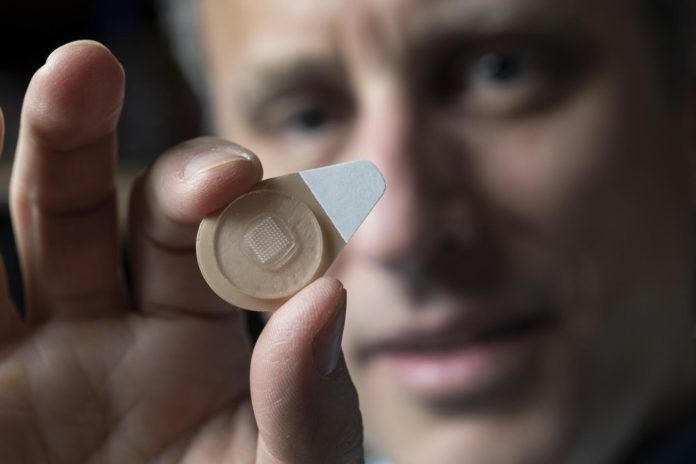The skin contraceptive patch that can be self administered by women and is effective for a long period
A new long-acting skin contraceptive patch designed to be self-administered by women may provide a new family planning option.
It could be of particular importance in developing nations where access to healthcare can be limited, a recent study suggests. The skin contraceptive patch would be delivered using microneedle skin patch technology originally developed for the painless administration of vaccines.
Long-acting contraceptives now available provide the highest level of effectiveness, but usually require a healthcare professional to inject a drug or implant a device. Short-acting techniques such as contraceptive pills, on the other hand, require frequent compliance by users and therefore are often not as effective.
In animal testing, an experimental microneedle contraceptive patch provided a therapeutic level of contraceptive hormone for more than a month with a single application to the skin.
If the microneedle contraceptive patch is ultimately approved for use, it could become the first self-administered, long-acting contraceptive that does not involve a conventional needle injection
When the patch is applied for several seconds, the microscopic needles break off and remain under the surface of the skin, where biodegradable polymers slowly release the contraceptive drug levonorgestrel over time. Originally designed for use in areas of the world with limited access to health care, the microneedle contraceptive could potentially provide a new family planning alternative to a broader population.
The research was reported January 14 in the journal Nature Biomedical Engineering and was supported by Family Health International (FHI 360), funded under a contract with the U.S. Agency for International Development (USAID).
“There is a lot of interest in providing more options for long-acting contraceptives,” said Mark Prausnitz, a Regents’ Professor in the School of Chemical and Biomolecular Engineering at the Georgia Institute of Technology and the paper’s corresponding author. “Our goal is for women to be able to self-administer long-acting contraceptives with the microneedle patch that would be applied to the skin for five seconds just once a month.”
Long-acting contraceptives are now available in formats such as patches that must be worn continuously, intrauterine devices (IUDs) that must be placed by trained healthcare professionals, and drugs injected with hypodermic needles.
If the microneedle contraceptive patch is ultimately approved for use, it could become the first self-administered, long-acting contraceptive that does not involve a conventional needle injection.


